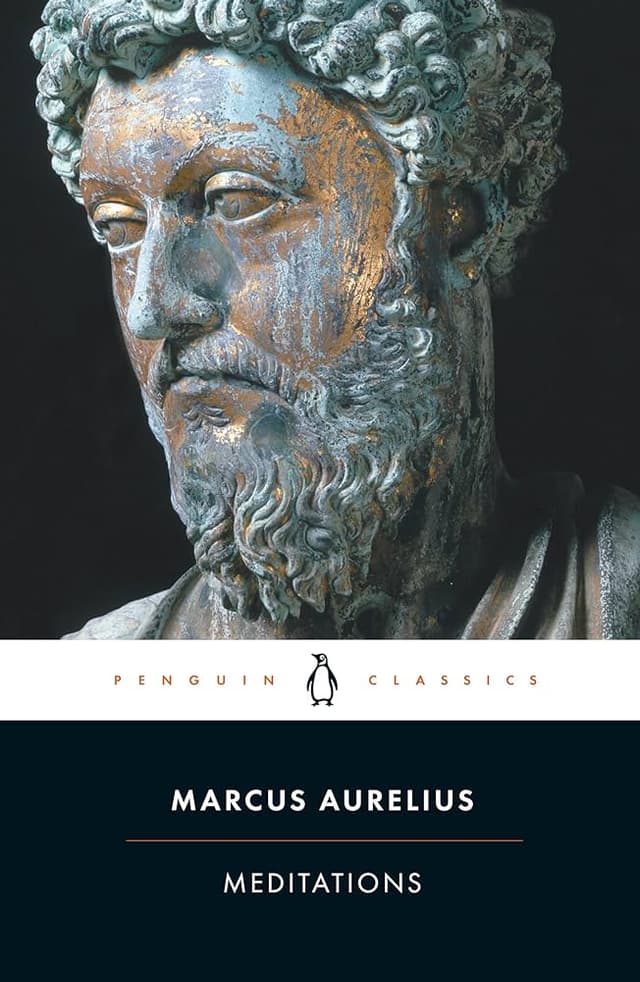The Wind-Up Bird Chronicle vs. Meditations by Marcus Aurelius
The Wind-Up Bird Chronicle
In a Tokyo suburb, a young man named Toru Okada searches for his wife’s missing cat—and then for his wife as well—in a netherworld beneath the city’s placid surface. As these searches intersect, he encounters a bizarre group of allies and antagonists. Gripping, prophetic, and suffused with comedy and menace, this is one of Haruki Murakami’s most acclaimed and beloved novels.
Meditations by Marcus Aurelius
From wikipedia: Meditations is a series of personal writings by Marcus Aurelius, Roman Emperor from AD 161 to 180, recording his private notes to himself and ideas on Stoic philosophy. Meditations are worth reading if only to get a glimpse at the thoughts of a man who lived a life in truly extraordinary circumstances of being a Roman Emperor. It's surprising how relevant the themes of his diaries are two thousand years later.

Reviews
Reviews
| Item | Votes | Upvote |
|---|---|---|
| Murakami at his best | 1 | |
| Long, captivating read | 1 |
| Item | Votes | Upvote |
|---|---|---|
| They cut out some chapters in the English translation | 1 |
| Item | Votes | Upvote |
|---|---|---|
| Practical advice on personal conduct | 1 | |
| Historical insight into Roman times | 1 | |
| Written by a Roman Emperor | 1 |
| Item | Votes | Upvote |
|---|---|---|
| No cons yet, would you like to add one? | ||
Frequently Asked Questions
Whether Meditations by Marcus Aurelius is better than The Wind-Up Bird Chronicle depends on your literary preferences. Meditations offers insights into Stoic philosophy and the personal thoughts of a Roman Emperor, making it a timeless piece of historical and philosophical literature. On the other hand, The Wind-Up Bird Chronicle is a modern novel by Haruki Murakami that delves into surreal and complex narratives, blending mystery and psychological depth. If you are interested in philosophical musings and historical context, Meditations might be more appealing. If you prefer a captivating fictional narrative with elements of mystery and psychological intrigue, The Wind-Up Bird Chronicle could be a better choice.
Meditations by Marcus Aurelius is deeply rooted in Stoic philosophy, offering profound reflections on life, virtue, and personal conduct from the perspective of a Roman Emperor. Its philosophical depth is significant as it provides timeless wisdom that has been relevant for centuries. In contrast, The Wind-Up Bird Chronicle by Haruki Murakami, while not a philosophical text per se, explores deep psychological and existential themes through its complex narrative and characters. The philosophical depth in Murakami's work is more implicit and woven into the story, as opposed to the explicit and direct philosophical insights found in Meditations.
The Wind-Up Bird Chronicle by Haruki Murakami is generally considered a more captivating read due to its intricate plot, surreal elements, and engaging narrative style. It's a long, immersive novel that keeps readers hooked with its mystery and psychological depth. On the other hand, Meditations by Marcus Aurelius is a collection of personal writings and philosophical reflections that may not be as captivating in the traditional sense of storytelling but provides a different kind of intellectual engagement. The choice depends on whether you seek an engaging fictional narrative or profound philosophical reflections.
'The Wind-Up Bird Chronicle' by Haruki Murakami is about a young man named Toru Okada who searches for his wife’s missing cat—and then for his wife as well—in a netherworld beneath the city’s placid surface. As these searches intersect, he encounters a bizarre group of allies and antagonists. The novel is gripping, prophetic, and suffused with comedy and menace.
Pros of 'The Wind-Up Bird Chronicle' include that it showcases Murakami at his best and is a long, captivating read. However, a con is that some chapters were cut out in the English translation.
'Meditations' is a series of personal writings by Marcus Aurelius, the Roman Emperor from AD 161 to 180. It consists of his private notes to himself and his ideas on Stoic philosophy. The book offers practical advice on personal conduct and provides historical insight into Roman times.
Pros of 'Meditations by Marcus Aurelius' include practical advice on personal conduct, historical insight into Roman times, and the unique perspective of being written by a Roman Emperor. There are currently no listed cons for the book.
'Meditations' was written by Marcus Aurelius, who was the Roman Emperor from AD 161 to 180.




















